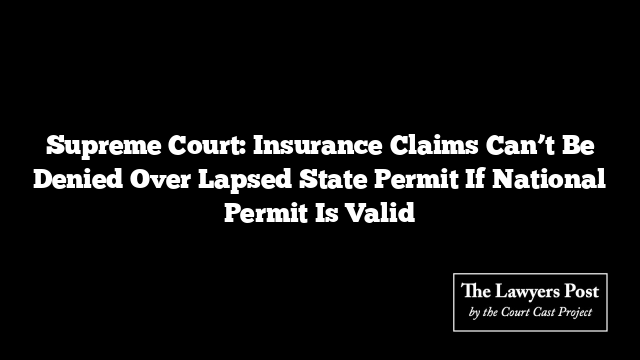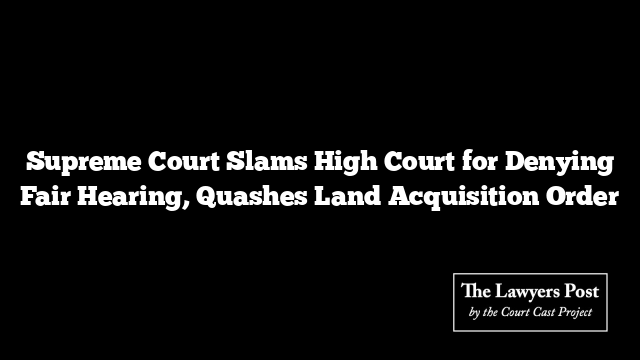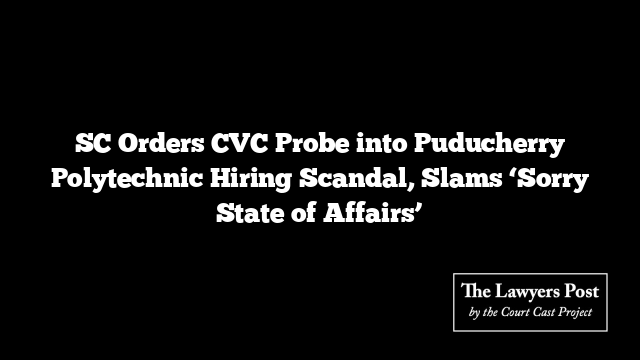The Supreme Court has ruled that insurance companies cannot reject claims solely due to the non-renewal of a state permit when a valid national permit is in place. The decision clarifies that if a vehicle suffers damage within its registered state, the absence of an updated authorization fee for a state permit does not invalidate the insurance claim.
The case involved a truck registered in Bihar, which caught fire due to an electrical short circuit in 2014. The insurance company refused the claim, arguing that while the national permit was valid, the state permit’s authorization fee had not been paid beyond 2013. The insurer contended that without an active state permit, the national permit itself could not be considered valid for insurance purposes.
A consumer dispute commission initially ruled in favor of the truck owner, directing the insurer to settle the claim. However, this decision was overturned by the National Consumer Disputes Redressal Commission (NCDRC), which held that a valid permit was required for the claim to be processed. The truck owner then appealed to the Supreme Court.
The Supreme Court, in a judgment authored by Justice S.C. Sharma, dismissed the insurer’s argument, stating that a national permit remains valid even if the authorization fee for a state permit is not paid, provided the vehicle operates within its home state. The Court noted that the permit was valid until 2017, and since the truck caught fire in Bihar, there was no requirement to pay additional fees for operation outside the state.
The ruling reaffirmed that an insurance claim cannot be denied on such technical grounds and restored the decision of the State Consumer Commission, allowing the truck owner’s appeal.





